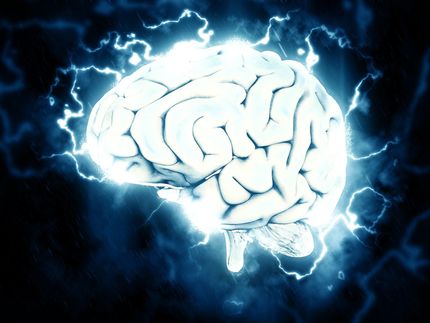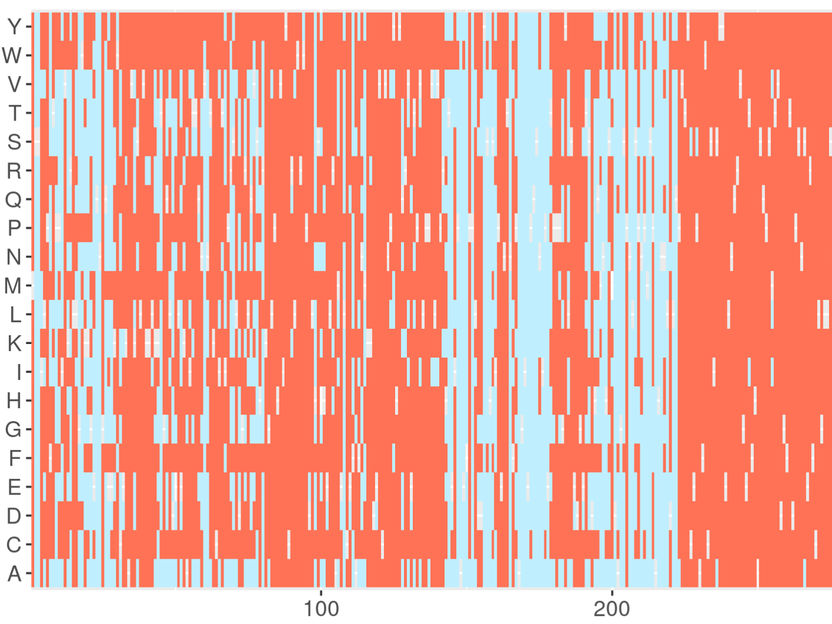Deep periodontal pockets promote dementia risk
Prevention and early treatment of periodontitis is important
The longitudinal SHIP study (Study of Health in Pomerania) has been researching the effect of oral diseases on people's general health since 1997. It has been shown that chronic periodontitis, which affects 15 to 45 percent of people depending on their age, increases the risk of cardiovascular diseases and dementia.

Dr. Lukasz Jablonowski in the Greifswald dental clinic
Yvonne Breuhahn
Now, scientists at the University Medicine Greifswald have published a new study in the American journal Alzheimer's & Dementia, confirming previous findings regarding a link with Alzheimer's disease.
"It is very difficult to perform methodologically meaningful studies on the effects of periodontitis, a common severe form of gum disease. Only recently developed statistical models make it possible to emulate a controlled clinical trial by combining available data from treated patients and untreated subjects", explained Dr. Christian Schwahn of the Department of Prosthetic Dentistry, Gerodontology and Biomaterials. "For the first time, the relationship between treatment of chronic periodontitis and preclinical Alzheimer's disease could be analyzed in a quasi-experimental model of 177 periodontally treated patients from the Greifswald Approach to Individualized Medicine (GANI_MED) study and 409 untreated participants from the SHIP study."
Moderate to strong effect clearly detectable
Magnetic resonance imaging (MRI) data were used as an indicator of preclinical Alzheimer's disease. These were compared with MRI data from the U.S. Alzheimer's Disease Neuroimaging Initiative so that they could be used as an individual measure of Alzheimer's disease-related loss of brain matter.
Periodontitis treatment administered by a dentist specializing in gum disease showed a favorable effect on loss of brain matter, which could be estimated as moderate to severe.
"These results are remarkable in that the periodontitis patients were younger than 60 years at the time of the MRI examination, with a median observation period of 7.3 years between oral treatment and MRI examination," emphasized co-authors Prof. Thomas Kocher, director of the Department of Restorative Dentistry, Periodontology, Endodontology, and Pediatric and Preventive Dentistry, and Prof. Hans J. Grabe, director of the Department of Psychiatry and Psychotherapy at the University Medicine Greifswald.
"Our approach clearly lies in the prevention and early treatment of gum disease, which can be triggered by a variety of pathogens, in order to prevent such possible consequential damage in advance," Kocher said.
In contrast, a study underway in the USA since spring 2019 is focusing on testing drugs. These are designed to achieve a treatment effect in subjects over 55 years of age already suffering from Alzheimer's disease by combating the harmful effects of the periodontal keystone pathogen (P. gingivalis) in the brain.
"We will have to continue to rely on observational studies that emulate a controlled clinical trial in this area," said Dr. Christian Schwahn. "A clinical trial with a placebo treatment in a patient group, i.e., with intentionally dentally untreated patients, is not feasible for ethical and medical reasons."
Original publication
Other news from the department science

Get the life science industry in your inbox
By submitting this form you agree that LUMITOS AG will send you the newsletter(s) selected above by email. Your data will not be passed on to third parties. Your data will be stored and processed in accordance with our data protection regulations. LUMITOS may contact you by email for the purpose of advertising or market and opinion surveys. You can revoke your consent at any time without giving reasons to LUMITOS AG, Ernst-Augustin-Str. 2, 12489 Berlin, Germany or by e-mail at revoke@lumitos.com with effect for the future. In addition, each email contains a link to unsubscribe from the corresponding newsletter.























































